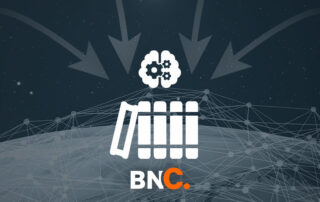Crypto Market Forecast: Midweek Update 29th September
Bitcoin rises in value as the Bank of England announces a new monetary expansion program, The Ripple labs-SEC lawsuit approaches a zenith, and BNB is an alpha performer amongst large-cap crypto assets.
Cryptoassets Taskforce: final report
This report provides an overview of cryptoassets and the underlying technology, assesses the associated risks and potential benefits, and sets out the path forward with respect to regulation in the UK.
London announces fintech and crypto task force
The UK will set up a new task force that will monitor cryptocurrencies and the fintech industry as a whole, which contributes 7 billion pounds annually to the UK economy.
Bank of England and PricewaterhouseCoopers partner to explore putting fiat currency on a blockchain
PriceWaterhouseCooper’s (PwC) Digital Technologies team [announced](http://pwc.blogs.com/northern-ireland/2016/06/pwc-northern-ireland-partners-bank-of-england-on-blockchain-technology.html) a major project with the Bank of England on Friday. The partners described a concerned effort to see if they can make fiat currencies like the British Pound Sterling work over a blockchain.
Central banks and digital currencies
Central banks and digital currencies: Speech given by Ben Broadbent, Deputy Governor for Monetary Policy, Bank of England at the London School of Economics on Wednesday 2 March 2016.
How Low Can You Go?
How low can you go? A Speech given by Andrew G Haldane, Chief Economist, Bank of England.
One Bank Research Agenda – Discussion Paper
The Agenda aims to improve the coordination and openness of our research across all policy areas, to ensure the Bank makes the best use of our data, and to cultivate an extensive research community that spans the Bank and beyond.
The economics of digital currencies
This article explores the economics of digital currencies â schemes that combine new payment systems with new currencies â and provides an initial view on the consequent implications for the Bank of Englandâs objectives to maintain monetary and financial stability in the United Kingdom. Any potential risks to monetary or financial stability posed by digital currencies will depend on how widely they are used, both today and in the future. The article therefore begins by examining the extent to which digital currencies are currently used as a form of money. As part of evaluating the likely growth in digital currenciesâ usage over time, it next examines the sustainability of the low transaction fees offered by digital currencies at present.
Innovations in payment technologies and the emergence of digital currencies
This report discusses more recent developments in payment systems, focusing on the emergence of privately developed, internet-based digital currencies.
Money in the modern economy
âMoney in the modern economy: an introductionâ, a companion piece to this article, provides an overview of what is meant by money and the different types of money that exist in a modern economy, briefly touching upon how each type of money is created. This article explores money creation in the modern economy in more detail.
Virtual Currency Schemes October 2012
This paper aims to provide some clarity on virtual currencies and tries to address the issue in a structured approach.



